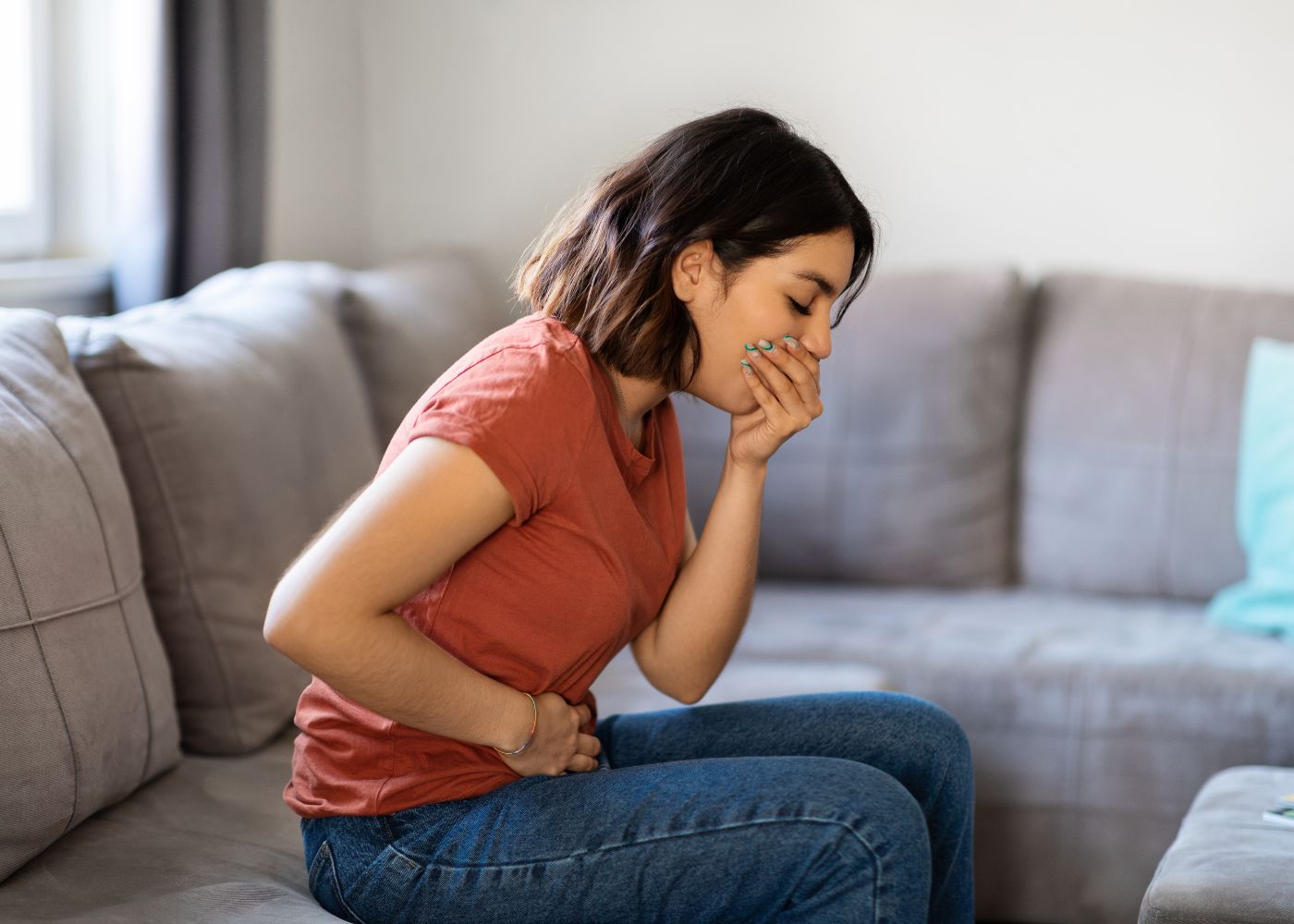Stomach pain, nausea, and diarrhea often catch people off guard, leaving many wondering whether they’re dealing with a stomach bug or food poisoning. While both conditions share similar symptoms, understanding the differences is crucial for proper care and recovery. Let’s compare food poisoning vs. stomach bug below:
What Is a Stomach Bug (Viral Gastroenteritis)?
A stomach bug, also known as viral gastroenteritis, is an infection of the stomach and intestines caused by a virus. Common viruses include norovirus and rotavirus.
The virus spreads through direct contact with infected individuals, consuming contaminated food or water, or touching contaminated surfaces.
A stomach bug’s symptoms usually appear gradually and can include:
- Nausea
- Vomiting
- Watery diarrhea
- Low-grade fever
- Stomach cramps
Symptoms generally last for 1 to 3 days. Although uncomfortable, the stomach bug often clears up on its own with rest and hydration. It’s most common during the winter months and spreads easily in communal settings like schools, daycares, and nursing homes.
If you’re experiencing these symptoms, you may need to learn about urgent care services for acute illnesses that can provide timely relief.
What Is Food Poisoning?
Food poisoning is caused by consuming food or drinks contaminated with harmful bacteria, viruses, or parasites. Unlike a stomach bug, which is spread from person to person, food poisoning typically results from improperly stored, handled, or cooked food.
Contaminants such as Salmonella, E. coli, and Listeria can all cause food poisoning. Symptoms of food poisoning tend to appear quickly—often within hours of eating—and may include:
- Nausea
- Vomiting
- Stomach cramps
- Diarrhea
- Chills
- Body aches
Food poisoning symptoms can range from mild to severe, depending on the source and level of contamination. It often clears up within 24 to 48 hours, though severe cases may require medical intervention, especially if there’s blood in the stool or signs of dehydration.
In situations where foodborne illnesses trigger severe dehydration or extended symptoms, urgent care facilities can offer the necessary medical assistance.
Key Differences Between Food Poisoning vs. Stomach Bug
While both stomach bugs and food poisoning share symptoms like nausea, vomiting, and diarrhea, there are a few key differences:
- Onset: Food poisoning symptoms often come on suddenly within hours of consuming contaminated food, while stomach bug symptoms can take longer to develop.
- Symptoms: Food poisoning often leads to body aches and chills, which are less common with a stomach bug.
- Duration: Food poisoning tends to clear up more quickly, though it can last longer in severe cases.
| Symptom | Stomach Bug (Viral) | Food Poisoning |
| Cause | Viral (norovirus) | Bacteria, virus, parasites |
| Onset | Gradual | Sudden (within hours) |
| Body Aches | Rare | Common |
| Chills | Uncommon | Common |
| Duration | 1-3 days | Hours to days |
How to Treat Stomach Bug and Food Poisoning
For both conditions, treatment primarily involves symptom management and preventing dehydration. Dehydration is especially dangerous for infants, elderly adults, and individuals with weakened immune systems. Here are some tips for at-home care:
For a Stomach Bug:
- Drink clear fluids like water, broth, or oral rehydration solutions (ORS).
- Eat bland foods when you can tolerate them, such as:
- Crackers
- Toast
- Plain rice
- Bananas
- Avoid dairy, caffeine, alcohol, and fatty or greasy foods until you’ve fully recovered.
For Food Poisoning:
- Rest and avoid food until vomiting and diarrhea subside.
- Start with small sips of water, ice chips, or ORS to stay hydrated.
- When ready to eat, stick to bland, easy-to-digest foods such as:
- Plain potatoes
- Boiled carrots
- Applesauce
- Avoid spicy foods, dairy, and raw fruits and vegetables until you recover.
In both cases, over-the-counter medications such as anti-nausea or anti-diarrheal drugs can help alleviate discomfort, but always consult a healthcare provider first, especially if symptoms persist.
When to Seek Urgent Care
Some symptoms warrant immediate medical attention, as they can signal a more serious condition. Seek urgent care if you or someone you’re caring for experiences:
- Severe dehydration: Dry mouth, little to no urination, extreme thirst, dizziness, or confusion
- Blood in vomit or stool: This could indicate a more severe infection
- High fever: Especially if it lasts more than a couple of days
- Vomiting or diarrhea lasting more than two days
- Severe stomach pain or cramps that worsen over time
If you are experiencing any of these severe signs, finding a nearby urgent care center can ensure prompt and appropriate treatment.
Conclusion: Don’t Take Chances with Your Health
Both a stomach bug and food poisoning can disrupt your daily life, but knowing how to differentiate between them helps ensure you take the right steps to recover quickly. Remember, rest, hydration, and light foods are your best allies in recovery.
If symptoms persist or worsen, don’t hesitate to seek professional care at +MEDRITE. Our team is ready to diagnose and treat your symptoms promptly so you can feel better sooner.

